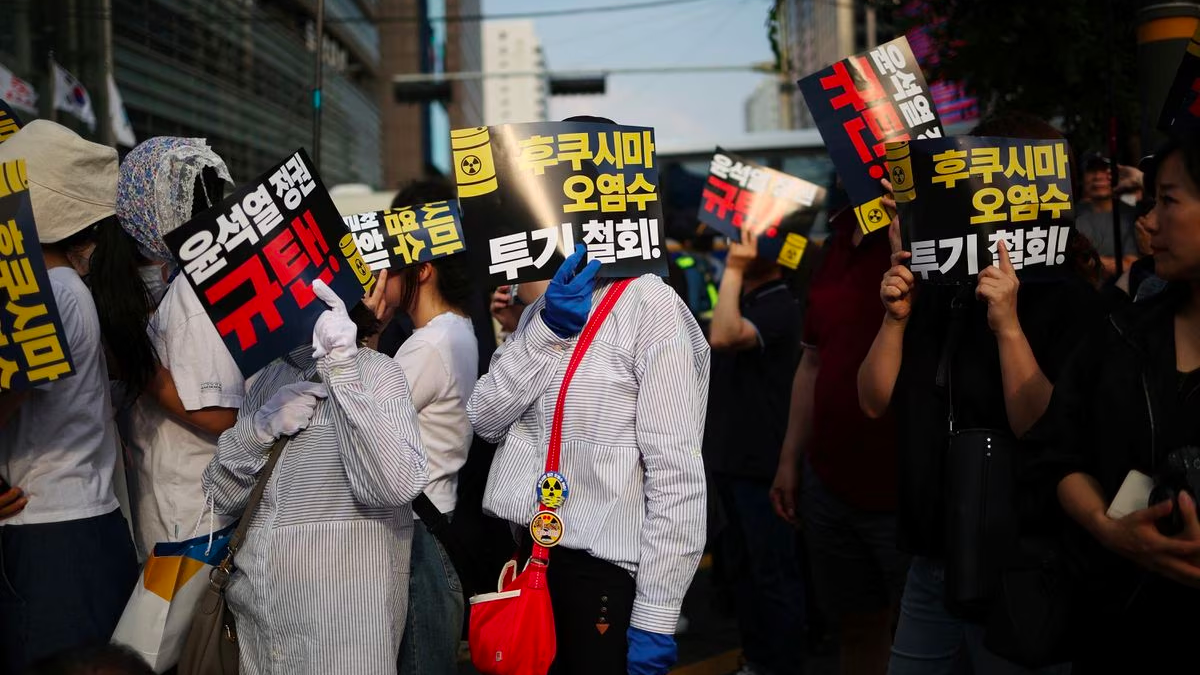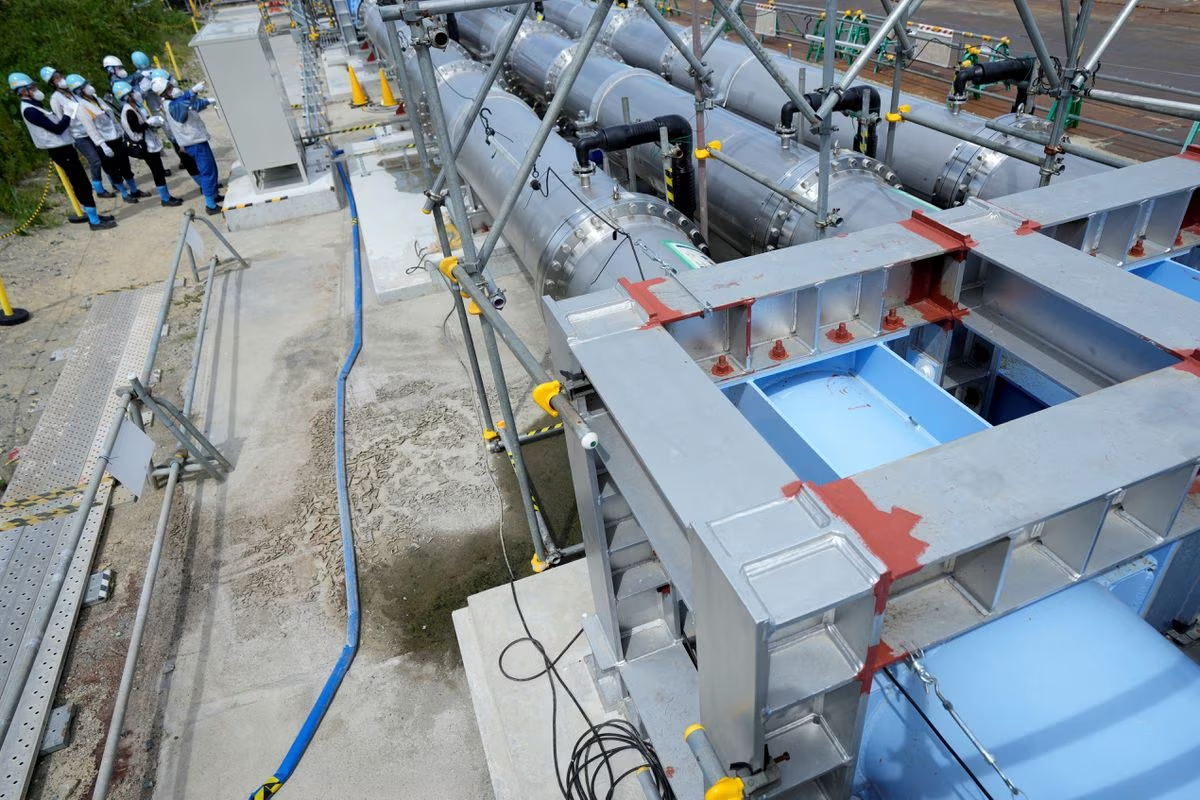
South Korean people take shade with signs during a protest against Japan's discharge of radioactive water from the wrecked Fukushima nuclear power plant into the Pacific Ocean, in Seoul, South Korea, August 26, 2023. /Reuters
South Korean people take shade with signs during a protest against Japan's discharge of radioactive water from the wrecked Fukushima nuclear power plant into the Pacific Ocean, in Seoul, South Korea, August 26, 2023. /Reuters
A majority of South Koreans are deeply concerned about Japan's discharge of nuclear-contaminated water from the Fukushima nuclear plant into the sea, despite assurances from their own government, a Gallup Korea poll published on Friday suggested.
More than 70 percent of respondents to the poll of 1,002 people expressed worries about the potential consequences for seafood, with 60 percent saying they were reluctant to consume seafood products.
Japan maintains that the water from the damaged nuclear facility is safe. It started the discharge into the sea on August 24, despite objections both at home and abroad from fishing communities and others worried about the environmental impact.
The South Korean government has stated that it does not perceive any scientific problem with the water release. Nonetheless, it emphasizes that it does not approve of the release and has instituted a ban on seafood imports from the waters off Fukushima, north of Tokyo.
Half of respondents to the poll who identify as conservative and supportive of the government expressed concerns.
President Yoon Suk-yeol's disapproval ratings have surged to 59 percent, a two-percentage-point increase from just a week ago and reaching a 16-week high.

A pipeline to transport seawater, part of the facility for releasing radioactive water to sea from the Fukushima Daiichi nuclear power plant, operated by Tokyo Electric Power Company Holdings, in Futaba town, northeastern Japan, August 27, 2023. /Reuters
A pipeline to transport seawater, part of the facility for releasing radioactive water to sea from the Fukushima Daiichi nuclear power plant, operated by Tokyo Electric Power Company Holdings, in Futaba town, northeastern Japan, August 27, 2023. /Reuters
Yoon has led a campaign to allay public concerns and promote seafood consumption. He recently paid a visit to a major fisheries market on August 31, where he shopped and had lunch. He has committed 80 billion won ($60.6 million) this year to encourage seafood consumption and has pledged to combat what he refers to as "fake news" about the water release.
In addition to these efforts, the government has initiated a voucher program, offering up to 20,000 won ($15) to shoppers who purchase seafood.
However, despite these measures, South Korean environmental groups and a significant portion of the public remain apprehensive. This has likely contributed to the increase in Yoon's disapproval ratings.
Protesters gathered in the capital of the country last Saturday, demanding that the government take measures to prevent what they perceive as a looming disaster resulting from Japan's discharge of treated radioactive water.
While people may not immediately witness disasters such as the detection of radioactive materials in seafood, it appears inevitable that this discharge will pose a risk to the local fishing industry, said an organizer of the protest.
(With input from Reuters)